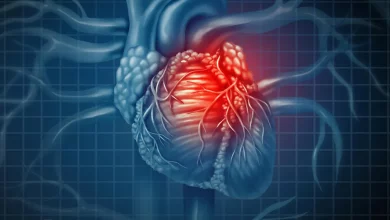
Ashwagandha is an ancient herb with historical roots dating 6000 years back to India’s Ayurvedic system of medicine. It’s an adaptogen, which means it helps the body adapt effectively to stress.[1] Ashwagandha is also beneficial for brain function and potentially helpful for mental afflictions like anxiety and depression. It protects metabolic health and heart health while boosting sexual drive.
If you want to reap the benefits of ashwagandha, you can find it as a dried powder or in capsule form. You can also drink ashwagandha tea or take an ashwagandha tincture. Here are 7 science-backed reasons to try ashwagandha:
1. Helps with Stress, Depression, and Anxiety
Ashwagandha helps you cope with stress by reducing the release of cortisol, which is the body’s major stress hormone. As an adaptogen, ashwagandha also improves your body’s resilience and resistance to stress.[1] In a 2-month study on healthy adults, 240 mg of ashwagandha taken daily was associated with lower outcomes on the depression, anxiety, and stress scale.[2] In a 2-month study involving 600 mg of ashwagandha daily, ashwagandha lowered stress levels and improved sleep quality in the participants.[3]
Intervention with ashwagandha has even been shown to improve symptoms of depression and anxiety in people with schizophrenia.[4] Whether you get occasional stress or have an anxiety disorder, ashwagandha could potentially help by regulating cortisol levels and boosting resilience against stress.

2. Boosts Libido
Whereas high cortisol levels suppress the sex drive, ashwagandha lowers cortisol and acts as a natural aphrodisiac. In men, ashwagandha is shown to boost testosterone levels and enhance sexual performance.[5] In animal models, ashwagandha has even been shown to reverse erectile dysfunction.[6]
However, ashwagandha is also shown to improve sexual function in women. Research shows that women taking ashwagandha have better orgasms, more arousal, increased lubrication, and higher satisfaction in their sex lives.[7]
3. Protects Cardiovascular Health
In healthy adults, 600 mg of ashwagandha daily was found to improve cardiorespiratory endurance after eight weeks. Compared to those given a placebo, the ashwagandha group had higher aerobic capacities, higher antioxidant levels, and better recovery scores than before the eight weeks of ashwagandha.[8] This suggests ashwagandha has heart-protective qualities that can also benefit athletes in their performance.
4. May Promote Metabolic Health
While the research on humans is lacking, ashwagandha has been shown in rats to lower high blood sugar and improve insulin sensitivity.[9] When insulin sensitivity is lost and insulin resistance sets in, you develop a risk for diabetes. It’s possible that in addition to protecting your heart’s health, ashwagandha also protects against metabolic diseases such as diabetes.

5. Enhances Muscle Gains
Ashwagandha is shown in studies to help athletes and everyday gymgoers put on more muscle mass when they work out. By improving muscle strength and recovery, ashwagandha can help strength trainers make faster gains.[10]
According to a study published in Nutrients, 500 mg of ashwagandha daily improved upper-body and lower-body muscle gains in men after 12 weeks. Compared to the control group, the ashwagandha group had statistically higher improvements in strength test exercises by the end of the study.[11]
6. Increases Exercise Endurance
Including ashwagandha in your protein shake each day or taking it every morning could help you have better workouts. Ashwagandha not only enhances your cardiorespiratory capacity and muscle growth but also your physical endurance during exercise. In a study on healthy men and women, supplementing with ashwagandha improved physical performance variables like hand grip and muscle strength of arms and legs better than a placebo.[12]
7. Benefits Brain Function
When taken regularly, ashwagandha can enhance memory function and potentially protect against the development of Alzheimer’s and dementia. It was shown to reverse memory and brain function deficits in mice with Alzheimer’s disease.[13] Results started showing in as soon as 7 days and worked by removing the amyloid plaque in the brain responsible for the development of neurodegenerative diseases. Another way ashwagandha has been found to reverse neurodegeneration is by protecting against oxidative damage.[14] While research on humans is yet to be done, the role of ashwagandha in protecting the brain against aging seems promising.
How Ashwagandha Can Boost Your Health
While ashwagandha has been documented in some of the oldest Ayurvedic texts, modern scientific research is slowly catching up. More benefits and uses of ashwagandha could yet be discovered. However, ashwagandha has been shown to help with muscle gains and exercise performance, mental performance, libido, stress, and anxiety. As an adaptogen, ashwagandha is used for a wide range of purposes in Ayurveda, as it can help restore your metabolic health, energy levels, and hormone balance.
Note that any compound or supplement, even those that are natural, can have unwanted side effects. You should always consult a physician before using herbal products or other supplements, especially if you have medical conditions, are taking medications or supplements, or may be pregnant.
References:
- “An Overview on Ashwagandha: A Rasayana (Rejuvenator) of Ayurveda” by Narendra Singh, Mohit Bhalla, Prashanti de Jager and Marilena Gilca, 3 July 2011, African Journal of Traditional, Complementary and Alternative Medicines.
DOI: 10.4314/ajtcam.v8i5S.9 - “An investigation into the stress-relieving and pharmacological actions of an ashwagandha (Withania somnifera) extract: A randomized, double-blind, placebo-controlled study” by Adrian L Lopresti, Stephen J Smith, Hakeemudin Malvi and Rahul Kodgule, September 2019, Medicine.
DOI: 10.1097/md.0000000000017186 - “Adaptogenic and Anxiolytic Effects of Ashwagandha Root Extract in Healthy Adults: A Double-blind, Randomized, Placebo-controlled Clinical Study” by Jaysing Salve, Sucheta Pate, Khokan Debnath and Deepak Langade, 25 December 2019, Cureus.
DOI: 10.7759/cureus.6466 - “Effects of a standardized extract of Withania somnifera (Ashwagandha) on depression and anxiety symptoms in persons with schizophrenia participating in a randomized, placebo-controlled clinical trial” by Jessica M Gannon, Jaspreet Brar, Abhishek Rai and K N Roy Chengappa, May 2019, Annals of Clinical Psychiatry.
PMID: 31046033 - “Effect of standardized root extract of ashwagandha (Withania somnifera) on well-being and sexual performance in adult males: A randomized controlled trial” by Sanjaya Chauhan, Manoj K. Srivastava and Anklesh K. Pathak, 20 July 2022, Health Science Reports.
DOI: 10.1002/hsr2.741 - “Effect of Withania somnifera root extract on the sexual behaviour of male rats” by I. Ilayperuma, W. D. Ratnasooriya and T. R. Weerasooriya, December 2002, Asian Journal of Andrology.
PMID: 12508132 - “Efficacy and Safety of Ashwagandha (Withania somnifera) Root Extract in Improving Sexual Function in Women: A Pilot Study” by Swati Dongre, Deepak Langade and Sauvik Bhattacharyya, 4 October 2015, BioMed Research International.
DOI: 10.1155/2015/284154 - “A double-blind, randomized, placebo-controlled trial on the effect of Ashwagandha (Withania somnifera dunal.) root extract in improving cardiorespiratory endurance and recovery in healthy athletic adults” by Shashank Tiwari, Sandeep Kumar Gupta and Anklesh Kumar Pathak, 15 February 2021, Journal of Ethnopharmacology.
DOI: 10.1016/j.jep.2021.113929 - “Effect of Withania somnifera on Insulin Sensitivity in Non-Insulin-Dependent Diabetes Mellitus Rats” by Tarique Anwer, Manju Sharma, Krishna Kolappa Pillai and Muzaffar Iqbal, 16 March 2008, Basic & Clinical Pharmacology & Toxicology.
DOI: 10.1111/j.1742-7843.2008.00223.x - “Examining the effect of Withania somnifera supplementation on muscle strength and recovery: a randomized controlled trial” by Sachin Wankhede, Deepak Langade, Kedar Joshi, Shymal R. Sinha and Sauvik Bhattacharyya, 1 April 2022, Journal of the International Society of Sports Nutrition.
DOI: 10.1186/s12970-015-0104-9 - “Effects of an Aqueous Extract of Withania somnifera on Strength Training Adaptations and Recovery: The STAR Trial” by by Tim N. Ziegenfuss, Anurag W. Kedia, Jennifer E. Sandrock, Betsy J. Raub, Chad M. Kerksick and Hector L. Lopez, 20 November 2018, Nutrients.
DOI: 10.3390/nu10111807 - “Effects of Ashwagandha (Withania somnifera) on Physical Performance: Systematic Review and Bayesian Meta-Analysis” by Diego A. Bonilla, Yurany Moreno, Camila Gho, Jorge L. Petro, Adrián Odriozola-Martínez and Richard B. Kreider, 11 February 2021, Journal of Functional Morphology and Kinesiology.
DOI: 10.3390/jfmk6010020 - “Withania somnifera reverses Alzheimer’s disease pathology by enhancing low-density lipoprotein receptor-related protein in liver” by Neha Sehgal, Alok Gupta, Rupanagudi Khader Valli, Shanker Datt Joshi, Jessica T. Mills, Edith Hamel, Pankaj Khanna, Subhash Chand Jain, Suman S. Thakur and Vijayalakshmi Ravindranath, 30 January 2012, Proceedings of the National Academy of Sciences.
DOI: 10.1073/pnas.1112209109 - “Attenuation of oxidative damage-associated cognitive decline by Withania somnifera in rat model of streptozotocin-induced cognitive impairment” by Md. Ejaz Ahmed, Hayate Javed, Mohd. Moshahid Khan, Kumar Vaibhav, Ajmal Ahmad, Andleeb Khan, Rizwana Tabassum, Farah Islam, Mohammed M. Safhi and Fakhrul Islam, 23 January 2013, Protoplasma.
DOI: 10.1007/s00709-013-0482-2
This article is not intended to provide medical advice. It is for informational purposes only and should not be relied upon as a substitute for professional medical advice, diagnosis, or treatment. If you have any concerns or questions about your health, please consult with a qualified healthcare provider. The information provided in this article is not intended to diagnose, treat, cure, or prevent any disease.





